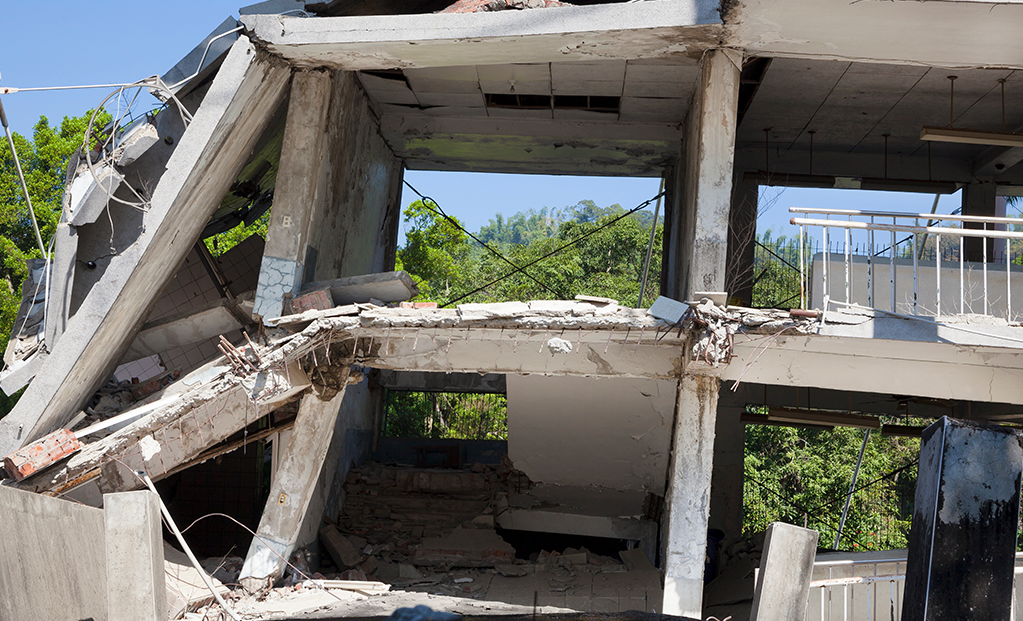
INSURANCE NERDS
BLOG
What You Need to Know About Earthquake Insurance
Your property may be at risk from earthquakes. Learn how to protect it.
What is Earthquake Insurance?
Just as a tsunami or hurricane, earthquakes can cause much harm to your business. They can damage property foundations and collapse walls; even relatively mild tremors can destroy property. Puerto Rico is located on the border between the North American and Caribbean plates, and there is evidence of oblique subduction and lateral displacement between the two plates. According to Seismic experts, Puerto Rico is long overdue to experience a catastrophic earthquake. Because the island has not experienced a large quake in recent years, the threat is oftentimes overlooked and ignored.
In Puerto Rico, earthquake coverage is included in Property and Casualty (P&C) insurance policies, and is not sold only for the individual. Normally the earthquake hazard is recommended in every property policy. However, there are people who acquire P&C insurance but don’t acquire earthquake insurance; others get it through parametric insurance.
Why You Should Have Earthquake Coverage:
Insurance is about protecting yourself, your company and your financial investments. By not having earthquake insurance, you place yourself at risk of losing everything or sustaining damages to your property that you cannot afford to repair if it is damaged by a natural disaster. Even if you have earthquake insurance, the financial hit can be huge.
If your business is damaged by an earthquake, you will be covered for repairs or reconstruction rather than losing everything, or having to borrow (more) money to make your business operational. It is always worth getting a quote so you can make an informed decision. You may also consider offsetting the cost by taking a higher deductible to save money on your insurance costs.
After Hurricane Maria, our experts confirmed that many clients have their properties insured well below the cost of what it would be today to rebuild that property completely.
This could have consequences with the insurer since, in the event of an earthquake, the insurer can apply a “Coinsurance”. Coinsurance is a penalty of up to 50% imposed by the insurer to the insured, for the property not being covered for its real value. Because of this it is very important to protect your property up to its replacement cost, this is the cost to repair and/or reconstruct it to the condition it was at the time of the loss.
Our experts are here to guide you through this process to ensure your properties are adequately covered for the real replacement cost.

What Property Owners Need to Know about Earthquake Insurance:
Earthquake coverage is available from most private insurers in a Property and Casualty insurance form on a separate policy or an endorsement to your property policy.
What many business owners do not realize is that the bank only protects the property mortgage, not the equity of your property or any improvements you have done to the property unless you request the insurer to add them to that insurance. Protecting the cost of sale of a property is one thing, another is to protect the property for the replacement cost.
Often, property owners are not aware of the value of the bank’s policy. If the value of the policy does not match the replacement value of the property, you may lose a lot of money and will not have the proper means to rebuild your business after a catastrophic event.
In order to avoid this happening, property owners must be aware that the bank’s policy has the limit of the appropriate value of what it costs to rebuild the property. For this reason, it is very important you contact one of our representatives to coordinate an updated valuation of your commercial property to update your policy accordingly.
Understanding Earthquake Deductibles:
- A deductible is an amount you are responsible for in each claim. The insurer is responsible for the amount greater than the deductible, up to the coverage limit.
- The deductible for earthquake insurance is typically 5% of the coverage limit but it can be higher depending on the type of construction of the building insured.
- As coverage and terms of insurance can vary from company to company, ask one of our experts how the deductibles will be calculated under your policy.
Conclusion:
The threat of an earthquake is much greater than most people realize, and the reality is, the cost of losing your business to a quake and not having insurance is far greater than the cost of earthquake insurance itself. Though we cannot say exactly when, it is certain that an earthquake will hit and it is essential that you are ready. At the end of the day, business owners must make an informed decision as to whether or not they are properly covered for when disaster strikes.
Fulcro is here to provide you with the proper knowledge and tools to ensure that you are covered if the unexpected happens.
Contact our insurance specialists to find out if your properties are protected from earthquakes.
